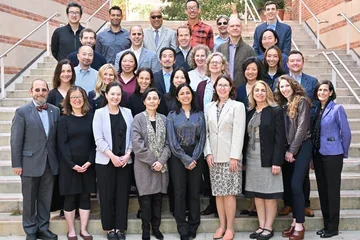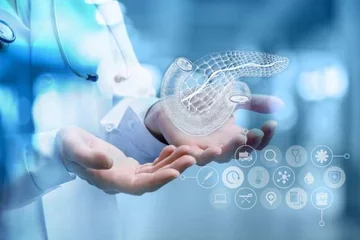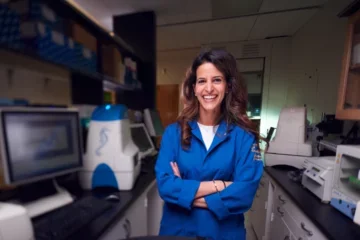What Does an Immunologist Do?
A UCLA Doctor Explains
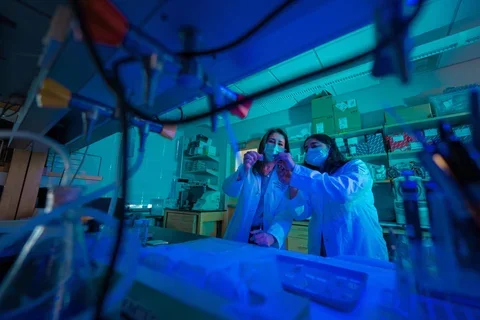
A Day in the Life of Dr. Steven Bensinger, Immunologist
The first thing Steven Bensinger, PhD, wants people to know about the burgeoning field of immunology is that it's not a clinical field in and of itself. Instead, it focuses on basic science.
To explain what an immunologist does, Dr. Bensinger responds: "We study how the immune system operates in normal health and how it contributes to disease."
For those who want to combine a scientific career with clinical work, Dr. Bensinger suggests pursuing the MD/PhD path.
"Lots of medical doctors end up doing immunology in conjunction with a subspecialty," he says. "Some common focus areas are transplant, allergic or infectious disease and autoimmune diseases like rheumatoid arthritis or multiple sclerosis."
Forging a Career
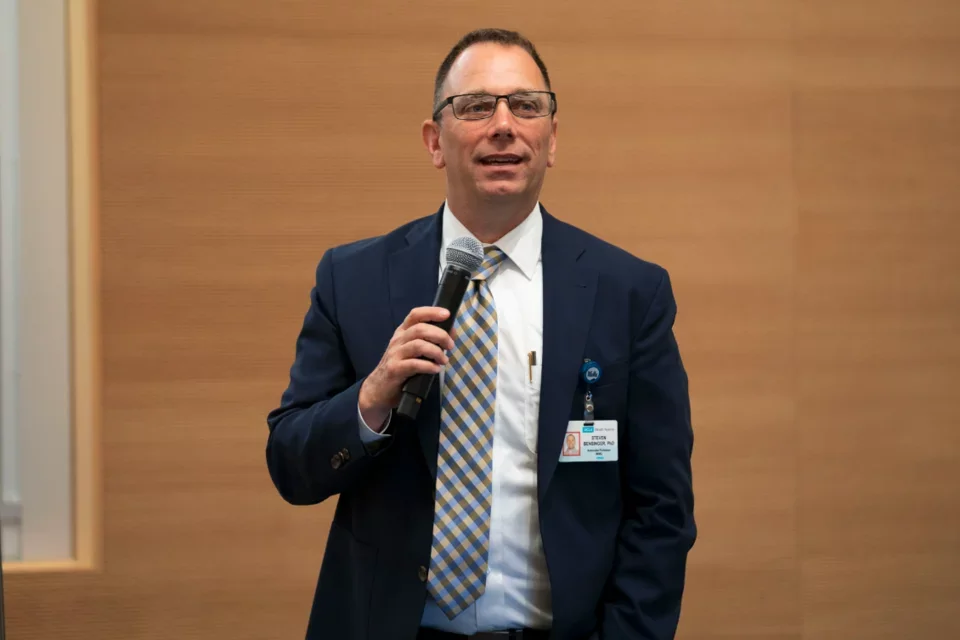
Dr. Bensinger has an unusual background. He earned a doctor of veterinary medicine degree before completing his PhD in immunology. His graduate work focused on transplantation.
"I was trained in a transplant lab where we studied cardiology in the context of heart transplants," he says. "My mentor in that lab was a nephrologist who did kidney transplants."
Steven Bensinger, PhD
Immunologist Steven Bensinger, PhD, runs a lab devoted to the study of immunometabolism. "Metabolic and immune processes inform each other constantly," he says.
As he was finishing his PhD, Dr. Bensinger became interested in metabolism. Following a postdoctoral fellowship in lipid metabolism at UCLA, he knew he wanted to combine his interests in lipid metabolism and immunology.
"My lab now focuses on immunometabolism and the idea that metabolic and immune processes inform each other constantly at a molecular level," he explains. "When a person becomes infected with a virus, it attempts to replicate by taking over the host's metabolism. We've discovered that the immune system senses that change and turns on a metabolic response to fight the virus. No one would have thought that five years ago."
New Discoveries in Immunology
In the future, the field of immunology promises to yield several discoveries significant to human health.
"We've recognized that some component of immunity affects every aspect of normal and pathologic physiology," Dr. Bensinger says. "There is much work to do because we still need to understand how the immune system works under normal circumstances, not just in the presence of disease."
Immunologists and other scientists want to harness the immune system to fight disease.
"For autoimmune diseases, we're trying to rein it in. For oncology, we're trying to stimulate it," Dr. Bensinger says. "Some of the biggest discoveries right now are taking place in oncology immunotherapy. Oncologists who are trained in immunology are now extremely important for translational medicine."
What Does an Immunologist Do?
A typical day for Dr. Bensinger varies, but a good portion of it involves reading and writing.
"I have to keep up with the literature, review papers from other scientists and write my own papers and grants," he says. "That's why, when students ask me what they should study, I say they must learn how to communicate. All we do in science is based on written and oral communication, and our careers succeed or falter on this basis."
He also instructs medical students as associate professor of Microbiology, Immunology & Molecular Genetics at the David Geffen School of Medicine, runs a lab, and directs a research initiative aiming to harness the immune system and transform health: the Immunity, Inflammation, Infection, and Transplantation (I3T) Unified Research Theme. Even the administrative tasks Dr. Bensinger handles in his collective roles play a part in advancing science.
"Despite my administrative responsibilities, I really do spend lots of time thinking about science," he says.

